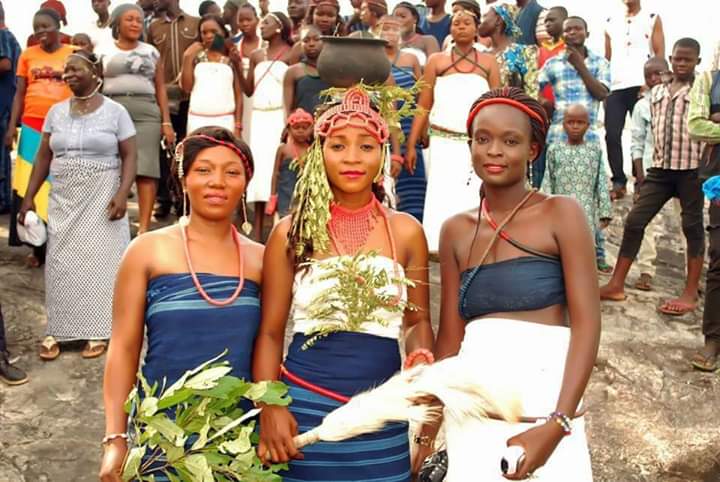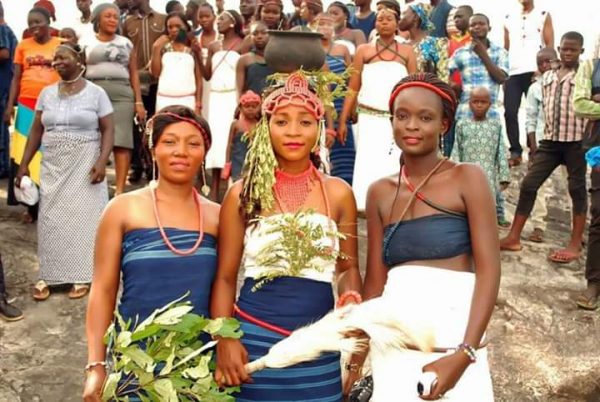The Kuteb (or Kutep) people are an ethnolinguistic group in West Africa, who speak the Kuteb language. The Kuteb Language is influenced by the Hausa language. Most of the Kuteb live in Taraba State, Nigeria.
Background
According to tradition, the Kuteb migrated from Egypt about 1000 AD, eventually reaching their present location around 1510. The Kuteb people are grouped into the following clans which are believed to be Children of Kuteb; Lumbu, Ticwo, Rufu, Askaen, Bika (Zwika), Ticwo, Rubur, Tswaen, Acha, Likam, Cwumam, and the Rucwu.
Read more on Ethnic Groups in Nigeria
Traditionally, they engaged in farming, hunting and fishing in the fertile lands of the Benue River basin. The people worshipped family deities but also believed in a supreme being who created the world and brings health, rain and the harvest. They were ruled by a paramount priest-king, the Kwe Kukwen, selected by a council of elders representing the different Kuteb clans. A 2007 report estimated the number of Kuteb people to approximately 100,000. Most live in what is now Takum Local Government Area of Taraba State, Nigeria, although there are a few Kuteb villages in Cameroon.
Under the British, who took control around 1900, the Kuteb were subject to the first-class Jukun ruler, or “Aku Uka” of the Wukari Federation. In 1914, the British made the Kwe Kukwen the only graded and third class chief in the Takum part of the confederation, with the title of Kwe Takum. He was made paramount over other peoples in the area. This change was resented by other ethnic groups of Hausa, Tiv, Chamba, Kukuns and Ichen, who forced the Ukwe Ahmadu Genkwe to leave Takum and reside elsewhere. The last Ukwe Takum was Ali Ibrahim, ruling from 1963 to 1996.
Politics and Religious Beliefs
The earliest direction for every activity in Kuteb land revolves around the theocratic role of the Kwe Kukwen, Akwen and Council of elders called Ndufu who represent the major known sub-clans and extended families. Kukwen is the Chief-Priest located in Mbarikam or Ikam or Teekum and the Akwen are the minor priests who are heads of the other clans. This practice started with Kuteb himself as the paramount chief priest/king of the Kutebs. The Kwe Kukwen may be chosen from any clan.
However, he must, on his election, come to reside in Teekum (Mbarikam Hill) being the ward of Likam and the Headquarters of the Kuteb Nation The traditional Kuteb political system is thus federal in nature. Even though the Kutebs recognised the seniority of Likam, the other clans had some autonomy to exercise powers of maintaining peace, protecting and achieving the interest of their respective clan members. However, such power ended where collective interest and programmes of the entire nation were to begin and where the settlement of disputes between individuals and clans were brought before the Kwe Kukwen. In addition to the political role, the Kukwen and Akwen have a spiritual role, responsibility and authority. The roles are rooted in the religious belief of the Kutebs.
Sign up to the Connect Nigeria daily newsletter
Chieftaincy stool issue
In the 1970s Takum was part of the old Benue Plateau State. The Local Government Gazette recognized three main chieftaincy stools in the Wukari Federation for the Wukari, Donga and Takum local government areas, each to be elected by their indigenous people. This law was changed by Governor Joseph Gomwalk in 1975, withdrawing the sole right of the Kuteb to select the holder of the Ukwe Chieftaincy stool of Takum from one of their two royal families. The new law allowed for election of a Chamba chief while making a Jukun man chairman of the selection committee and altering the composition of the committee to include Jukun and Chamba as well as Hausa and Kuteb. The justification was the changing demographics of Takum, but the result was disturbances that caused the government to ban the traditional annual Kuchichebe festival when the land is blessed to ensure the next harvest will be fertile. Later, similar festivals were banned in other Wukari Federation areas due to the trouble they caused.
Sources:
Geoffrey G. Gania. The Kuteb People”. 2005.
William Ahmed Gangum. “The Kuteb People”.2010.
Robert Koops (2009). A grammar of Kuteb, A language of East-Central Nigeria. Rüdiger Köppe Publishers,
www.wikipedia.org
Featured Image Source: Kuteb People and Culture
Did you find this article useful? Contact us: [email protected]


